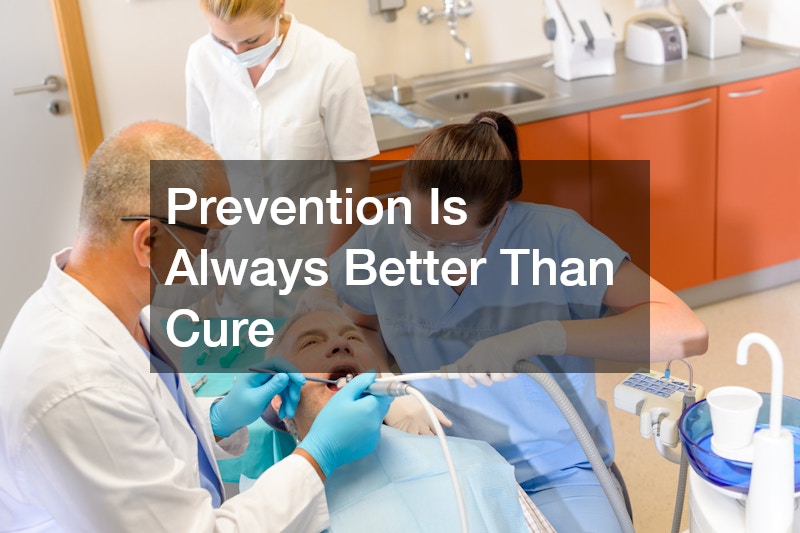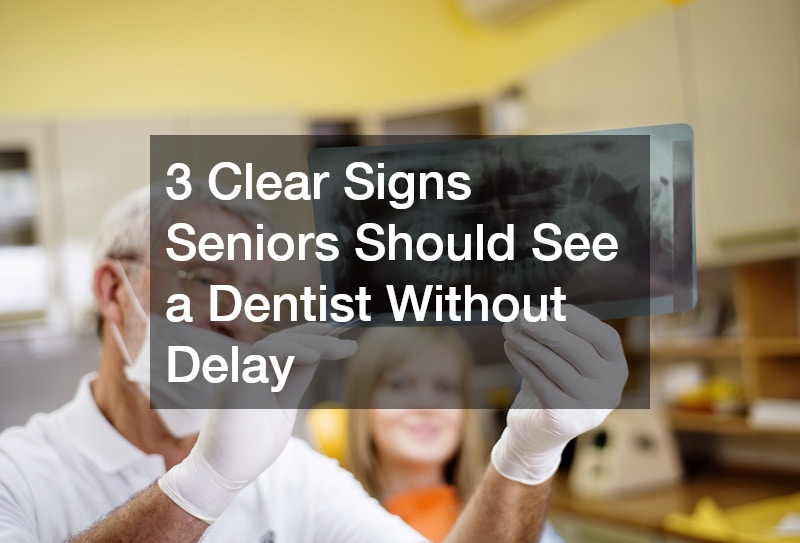Oral health plays a critical role in overall wellbeing, particularly for older adults. As we age, our bodies undergo a range of changes that can make us more vulnerable to health issues—oral health included. For seniors, ignoring dental issues can lead to more severe health complications, discomfort and a loss of quality of life. While regular check-ups are ideal, certain warning signs mean it’s essential to visit a dentist without delay.
Below are three clear indications seniors should never ignore.
Persistent Tooth or Gum Pain
Pain is the body’s way of signalling that something isn’t right. For seniors, persistent pain in the mouth should never be brushed off as simply part of ageing.
Constant discomfort in the teeth, gums or jaw may point to infections, tooth decay or gum disease—each of which can lead to more serious health concerns if not addressed early.
Gum disease is especially prevalent among older Australians. If left untreated, it can progress into periodontitis, a condition that affects the bones and connective tissue that support the teeth. This not only results in tooth loss but has also been linked to heart disease, diabetes and respiratory infections. When pain lingers for more than a few days or comes and goes but doesn’t fully resolve, it’s time to see a dentist .
A thorough examination can identify the root cause of the pain and stop it from worsening. Early detection may allow for more conservative treatments, reducing the risk of major procedures and the costs associated with them.
Loose or Shifting Teeth
Teeth that move, wiggle or feel unstable are a red flag for seniors. It’s a common misconception that tooth loss is just a normal part of ageing. In reality, adult teeth are meant to last a lifetime when properly cared for. A shifting bite or loose teeth often point to advanced gum disease, bone loss or infection—issues that require immediate professional attention.
Changes in the alignment of teeth can also affect how seniors eat, speak and smile. These changes may go unnoticed at first but gradually lead to more discomfort and functional limitations. If dentures no longer fit properly or if chewing becomes difficult or painful, it may be due to shifting teeth or changes in the jawbone structure.
Seeing a dentist promptly can help prevent further tooth loss and provide seniors with the support they need to restore comfort and function. Treatments may include deep cleaning, gum therapy or, in some cases, restorative procedures to preserve what’s left of the natural tooth structure.
Sores, Lumps or Discolouration in the Mouth
Oral cancers are more common in seniors, especially those over the age of 60. Unfortunately, many cases go undetected until they’ve progressed into later stages, making treatment more complex and outcomes less favourable. Seniors who notice any unusual lumps, persistent sores, bleeding or patches of discolouration in the mouth should see a professional immediately.
These symptoms are not always painful, which is why they often go overlooked. However, early detection is key in successfully treating oral cancers and other serious conditions. In many cases, a quick screening by a dental professional can detect abnormal tissues that may not be visible to the untrained eye.
Even if the growths or sores seem minor or painless, it’s important not to wait. Regular self-checks at home can help, but nothing replaces the trained eye and diagnostic tools of a qualified dentist.
Prevention Is Always Better Than Cure
While the above signs require urgent attention, seniors don’t have to wait for problems to arise before visiting a dental professional. Preventive care remains the most effective way to maintain oral health and overall wellness. Seniors who schedule routine check-ups often experience fewer complications and lower treatment costs over time.
In addition, many dental conditions develop slowly. By the time symptoms become noticeable, the damage may already be significant. Regular dental visits allow for early detection and provide tailored guidance on home care, nutrition and hygiene that supports lifelong health.
Oral Health Is Linked to General Health
The condition of one’s mouth is closely connected to general health. Infections in the mouth can enter the bloodstream and affect other parts of the body. For older adults, this can be particularly dangerous, especially if they have underlying health conditions such as diabetes, heart disease or a weakened immune system.
Poor oral health can also affect mental wellbeing. Seniors who feel self-conscious about missing or damaged teeth may avoid social situations, leading to isolation and decreased quality of life. Addressing dental concerns not only improves physical health but also helps maintain confidence and emotional wellbeing.
.




